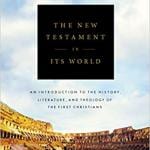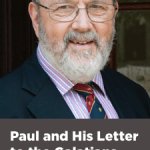Edited by Kelly M. Kapic and Hans Madueme
Reading Christian Theology in the Protestant Tradition
London: Bloomsbury T&T Clark, 2018.
Available at Amazon
By Laura Thierry
“Are you hungry? Come, sit at the table prepared for you.” (1) Thus opens Reading Christian Theology in the Protestant Tradition. How could one resist such a delightful invitation into the world of Christian historical theology? But be ready that you had better come hungry, for Kelly Kapic and Hans Madueme (along with their army of contributors) have prepared a feast of gigantic proportion! Reading Christian Theology in the Protestant Tradition in its 817 pages sets about the massive task of outlining a broad and essential picture of the Christian Protestant tradition through the writings that shaped its world in selections from “fifty-eight works…from the past 2,000 years” (5). It covers ‘The Early Church Period’, ‘The Medieval Period’, ‘The Reformation Period’, ‘The Seventeenth and Eighteenth Centuries’, and ‘The Nineteenth and Twentieth Centuries’, containing twelve classic works from each.
Several elements make this tome particularly beneficial.
Firstly, each of the works is introduced with a succinct and clear essay. These are deliberately and carefully “descriptive rather than prescriptive” in focus. This approach helpfully serves the reader by enabling them to gain a sufficiently adequate introduction to the world of the text without spoon-feeding them particular pre-prepared theological outcomes.
Secondly, this book provides a truly ‘catholic’ understanding of Protestantism, with well more than a third of its contents written before the Reformation. This bears witness to the contributors’ valuable convictions that one can only understand Protestantism when one sees it, as the Reformers did, as being “self-consciously “catholic”’ (3). Particularly delightful was the inclusion of a broad range of Medieval texts, such as Richard of St. Victor’s The Trinity, and Gregory the Great’s Pastoral Care – delectable works often all but forgotten in many Protestant history’s.
Thirdly, this volume is upfront about the historical reality that “because the Protestant Reformation grew out of the Roman Catholic Church, and since this young movement was nurtured in the soil of Europe, early Protestantism has a strongly Western feel to it” (4). This historical honestly is nuanced in the fact that the editors call upon their readers to explore further afield than just these (Western) classics, while also maintaining that certain texts simply have a particularly high level of influence within the Protestant tradition. While we might not always agree with these works, the editors helpfully maintain that, before a person or tradition dismisses the texts that formed them, they have a duty of integrity to have rightly read and understood them. As Kelly Kapic writes, “We believe that one cannot properly critique until one has begun to understand” (3).
Lastly, the selection included in this book, while carefully chosen on account of its ‘classic’ and formational status, is by no means uniform. From mystic to scholastic to everything in between this collection of works complement, and at times, contradict and clash with one another. And yet they each have a significant place within the overarching story of Protestantism. The editors’ decision to deliberately avoid snipping, smoothing, and explaining the whole into a simplistic unity bears witness to their convictions about Protestantism’s ‘living’ nature: “Composed of various traditions, Protestantism is a living Faith. No matter where one ends up, the student should at least become familiar with key classic works, while not expecting to agree with everything said” (3).
Thus, this book would serve as a beneficial resource for any Church History or Historical Theology syllabus, particularly on account of its broad bibliography and suggestions for further reading. But perhaps its ideal audience would be students of theology and Church History. This book’s manner of making a massive collection of formational texts available in an affordable format makes it a truly desirable volume for any student seeking to delve deep into the delights of Christian theology in the Protestant tradition.
Laura Thierry a PhD student at Ridley College, researching medieval hagiography, Christology, and theology of the body.
















